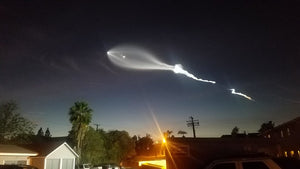Super Blood Moon Eclipse Jan 20th
On the evening of January 20th, 2019 the full moon's bright surface will transform! As the moon enters Earth's shadow, the entire moon will turn a rusty color. Scattered sunlight will produce the red colors we perceive at sunset and sunrise when this light enters Earth's atmosphere at an angle.
According to NASA scientist Noah Petro, a lunar eclipse displays the color of all of Earth's sunrises and sunsets reaching the moon. If an observer stood on the moon during a total lunar eclipse, Earth would appear to have a crimson ring all around it. The observer would gaze at the 360-degree sunrise and sunset on the Earths shadowy outline.
Although most of us cannot observe this phenomenon from the moon we can do the next best thing and observe its reflected light from our own backyards.
| Location | Eclipse Begins | Totality Begins | Totality Ends | Eclipse Ends |
|---|---|---|---|---|
| Anchorage, Alaska | 6:33 p.m AKST | 7:41 p.m. AST | 8:43 p.m. AST | 9:50 p.m. AST |
| Los Angeles, California | 7:33 p.m. PST | 8:41 p.m. PST | 9:43 p.m. PST | 10:50 p.m. PST |
| Mexico City, Mexico | 9:33 p.m. CST | 10:41 p.m. CST | 11:43 p.m. CST | 12:50 a.m. CST |
| Miami, Florida | 10:33 p.m. EST | 11:41 p.m. EST | 12:43 p.m. EST | 1:50 a.m. EST |







